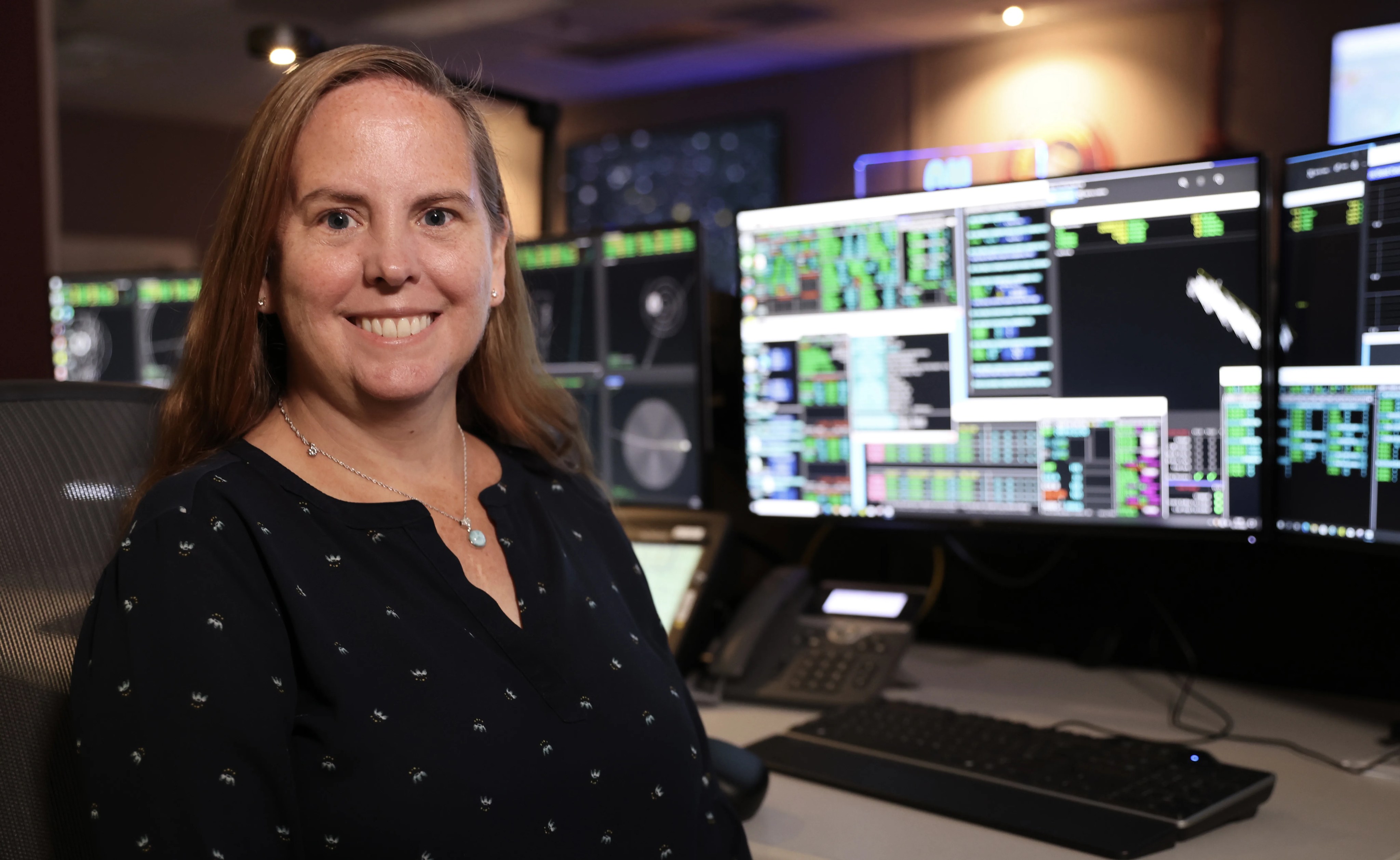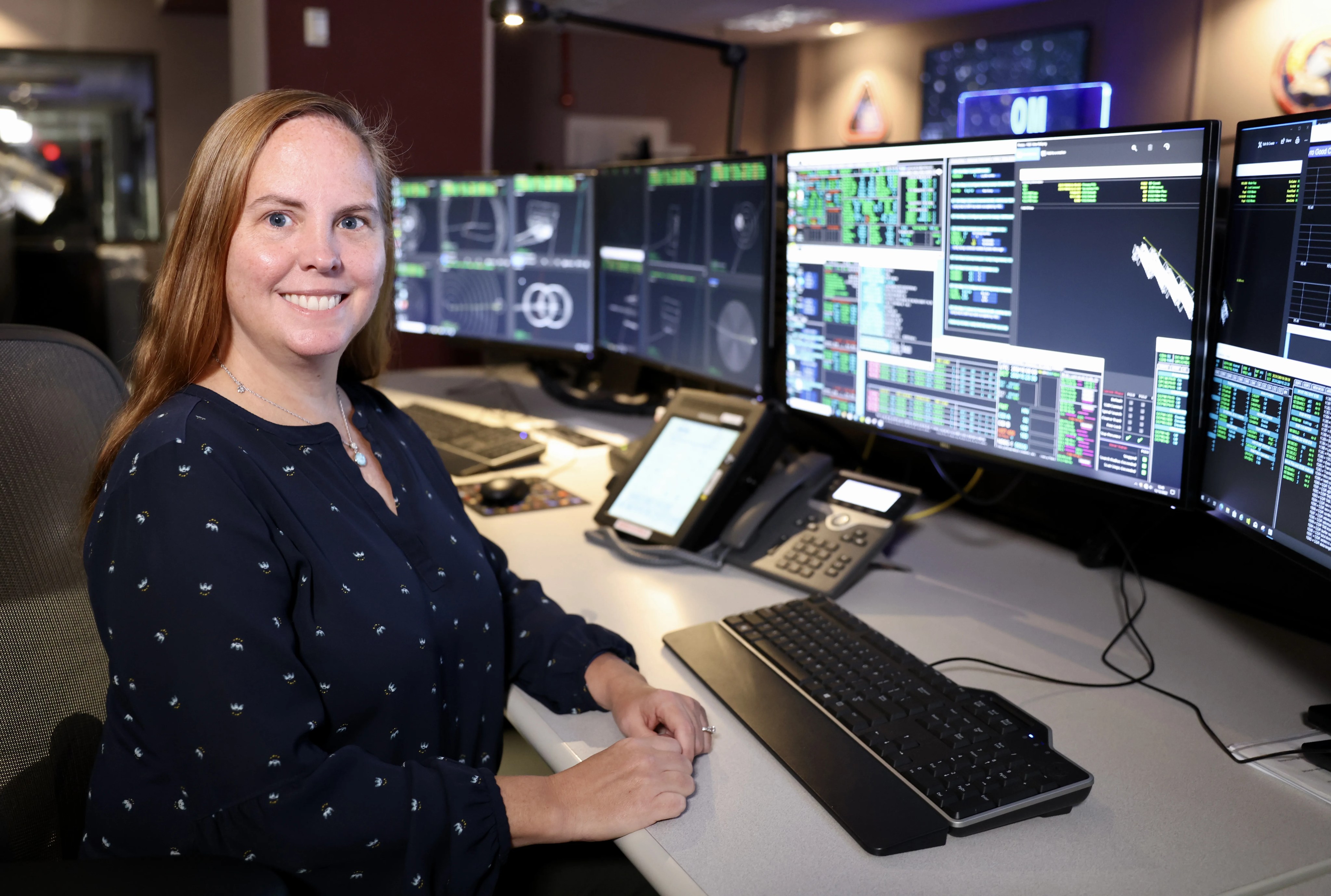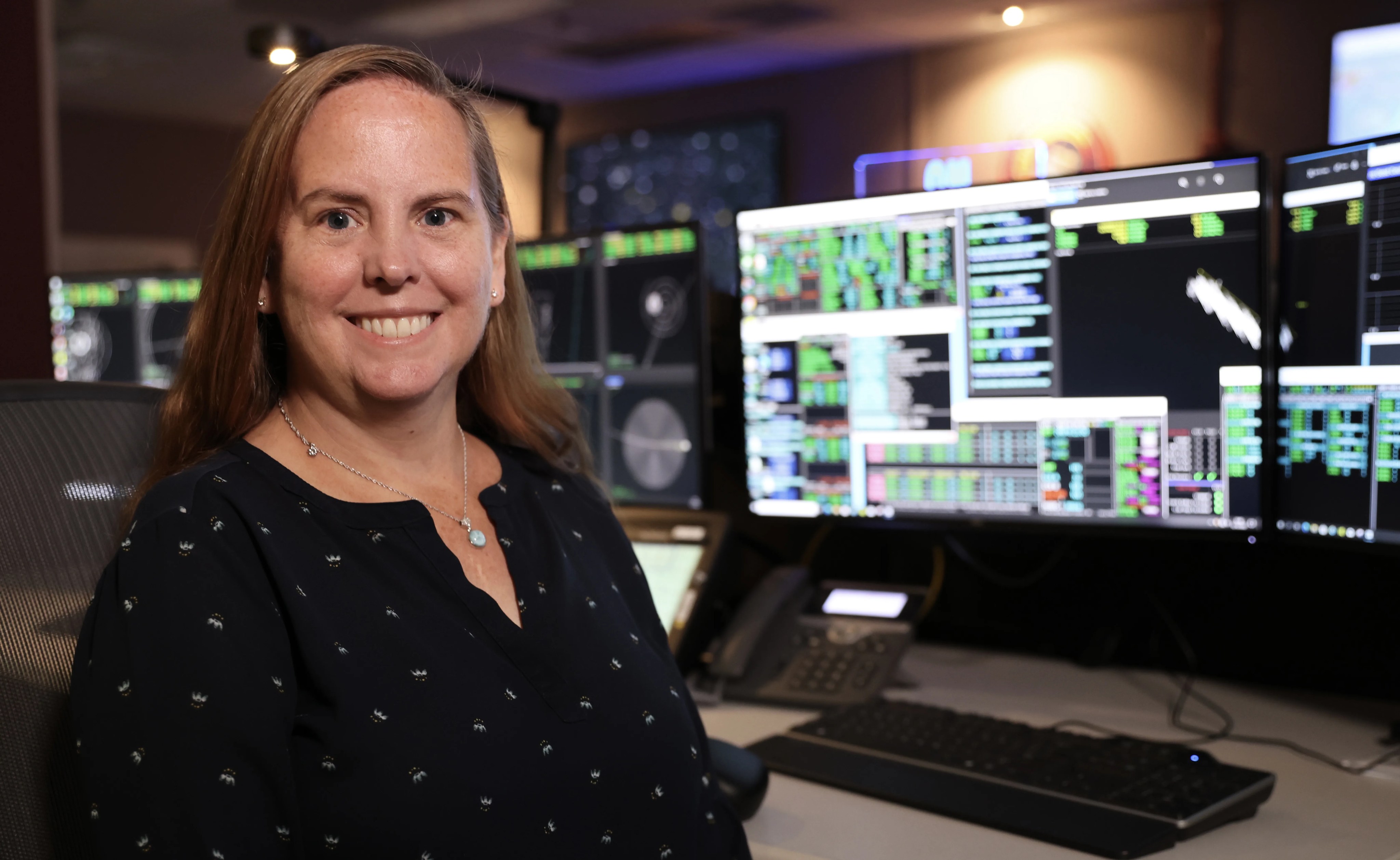
Morgan Van Arsdall
Deputy Operations Manager | NASA's Goddard Space Flight Center
Morgan Van Arsdall is the Hubble Space Telescope deputy operations manager at NASA’s Goddard Space Flight Center in Greenbelt, Maryland. She is part of the team responsible for the overall health and safety of Hubble. She responds to any anomalies on the spacecraft to get it back up and operating as quickly as possible, and searches for ways to improve the telescope’s efficiency and longevity.
Van Arsdall began with Hubble in 2001 as a systems engineer after a period spent working on military satellites for Lockheed Martin. She became a Hubble systems manager in 2017, working with the Hubble team to ensure that when subsystems are changed or updated, the effects on the other subsystems are considered and tested to ensure that the telescope continues functioning well overall, then took on the deputy operations manager role in 2022.
In 2022, she was part of the team awarded the Rotary National Achievement for Space Stellar Award for successfully completing the side swap of Hubble following a failure in one side of the science computer, a project that returned Hubble to science operations after a pause that lasted more than a month.
Van Arsdall grew up in Drexel Hill, Pa. She obtained a bachelor’s degree in aerospace engineering from the University of Notre Dame and a masters in science, technology and public policy from George Washington University. She lives in Annapolis with her husband, two children, and a dog, and loves spending time on and near the Chesapeake Bay, being a Girl Scout leader, and traveling the world to explore new places.

In a quiet, calm room of engineers, Morgan Van Arsdall waited for the response from the Hubble Space Telescope to the change the Hubble team had just made to its operations, the biggest alteration since the final servicing mission to the telescope in 2009.
In 2021, a problem with the onboard computer that monitors the telescope’s science instruments was preventing the telescope from collecting data. After weeks of study and testing, the team had chosen to switch to previously unused backup hardware, some of which was installed when the telescope was first built to prevent just this kind of failure. To do it, they had to put the telescope into a protective “safe mode” suspension and then bring everything back online again.
As one of the anomaly response managers at the time, Morgan had been working for weeks to help identify the problem and plan out its fix, with the team sometimes working 12 to 16 hour days to ensure they understood the switch process and had practiced until they could perform it flawlessly. “There were moments when we were like, ‘Is this the end? Is something going to die and we’re not going to be able to recover?’” she said. When data began to flow from the telescope again, there were a few cheers but mostly grateful sighs. The atmosphere was one of tremendous relief, but today Morgan remembers the excitement as well.
n a quiet, calm room of engineers, Morgan Van Arsdall waited for the response from the Hubble Space Telescope to the change the Hubble team had just made to its operations, the biggest alteration since the final servicing mission to the telescope in 2009.
In 2021, a problem with the onboard computer that monitors the telescope’s science instruments was preventing the telescope from collecting data. After weeks of study and testing, the team had chosen to switch to previously unused backup hardware, some of which was installed when the telescope was first built to prevent just this kind of failure. To do it, they had to put the telescope into a protective “safe mode” suspension and then bring everything back online again.
As one of the anomaly response managers at the time, Morgan had been working for weeks to help identify the problem and plan out its fix, with the team sometimes working 12 to 16 hour days to ensure they understood the switch process and had practiced until they could perform it flawlessly. “There were moments when we were like, ‘Is this the end? Is something going to die and we’re not going to be able to recover?’” she said. When data began to flow from the telescope again, there were a few cheers but mostly grateful sighs. The atmosphere was one of tremendous relief, but today Morgan remembers the excitement as well.
When an anomaly comes, that’s when we get to see all the hard work and effort pay off and get to see that all the planning we did was effective.

Morgan Van Arsdall
Deputy Operations Manager
“So much of what we do in ops, because Hubble is normally just operating fine, is thinking about things that might go wrong or looking into the future,” she said. “When an anomaly comes, that’s when we get to see all the hard work and effort pay off and get to see that all the planning we did was effective.”
